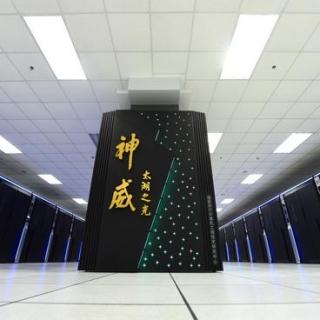
介绍:
中国超级计算机 世界最强
ZJN: A Chinese computer once again tops the list as the world’s fastest computer system. Sunway Taihu Light performs 93,000 trillion calculations per second at its peak, and has around 10 million computing cores.
LK: Well, the top 500 list of the world’s top supercomputers just announced at the 2016 International Supercomputer Conference in Frankfurt, Germany, said: “Considering that just 10 years ago, China claimed a mere 28 systems on the list, with none ranked in the top 30, the nation has come further and faster than any other country in the history of supercomputing.” So, according to your observations, what are the reasons behind China’s rise in this area?
JZ: Well, I think it’s China’s commitment; it’s probably got to do with government support, because when you’re doing a comparison, you’re doing a comparison with the United States. I’m looking at the New York Times’ figures; China has 167 and the US has 165 [of the top 500 supercomputers]. Now, the United States has been decades more involved in the development of supercomputers, there is more money, there has been more research power at universities, but this has changed, because the United States hasn’t had the commitment to science and technology that China has, so the reason for China’s great progress has been its commitment.
LK: In the area of developing supercomputers, what are the usual international common practices in terms of information sharing and at the same time, protecting your intellectual property rights?
JZ: Well, I think most organizations have been pretty wary to share everything, and certainly not with overseas countries, but what you’ve got – and I mean it’s rather interesting – the US is not focused on supercomputers. If you look at all the current developments, and particularly social media, if you look at the retrieval engines of Google, if you look at Facebook, all of these, the software is coming out of the United States, but the investment in hardware has always been a long way behind its investment in software – and I think really, the reason is because the investment in social media has been driven by profit-making, whereas the investment in large-scale computers has much less of a financial benefit.
NL: Looking forwards then, what would you say are the future trends of development when it comes to supercomputers?
JZ: Well, I mean the trend is there for China to develop more and larger supercomputers, and these supercomputers won’t just help in computing, they will help in education, they will help in medicine, they will help in defense. The United States is more likely to be involved in that sort of software that is going to be used by individuals. They are a much more individualistic society, and individuals don’t care about supercomputers because they are not using them, they don’t have these sorts of problems, they care more about Facebook and Whatsapp and all these other social media interfaces.
大家还在听

